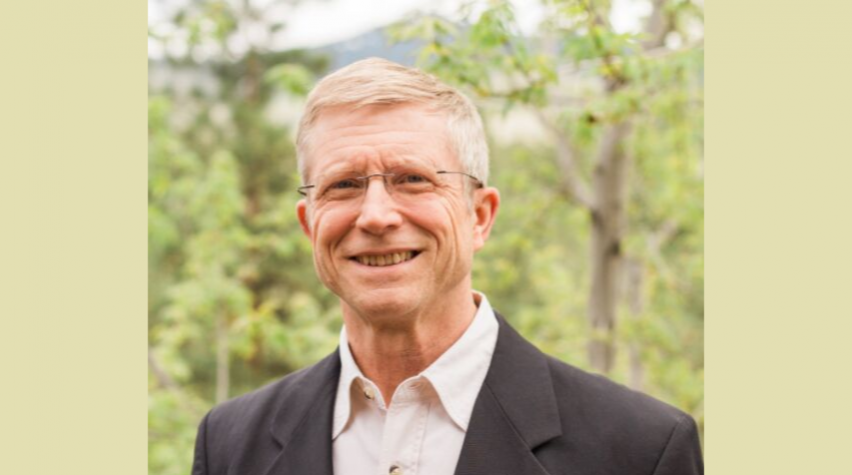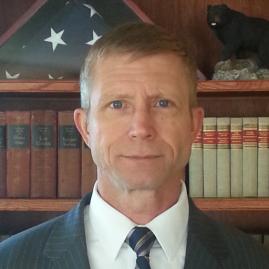
The Enterprise and Infrastructure Resilience Conference will explore complex resilience strategies that companies today can utilize. This conference will gather speakers from industry, government, and academia to address various topics including dependence on external systems, resilient design, advanced control systems, resilient power supply systems and much more.
Paul Roege will be speaking about the importance of critical thinking, discussion, and creativity when it comes to building resilience in any enterprise. He will deliver his talk at the Enterprise and Infrastructure Resilience Conference in August. I spoke with Paul about his work experiences in the field of resilience, as well as the challenges he's faced, and where he sees the field going in the future.
Where do you see our future heading in terms of resilience?
Resilience thinking calls for a different world view that embodies a new balance. On one hand, we need a sense of humility to recognize that we can’t control what we can’t predict — and there always will be “unknown unknowns.” At the same time, resilience thrives upon the agency of each person — the belief that we can make a difference, backed up with proportionate knowledge and skills.
In practical terms, our design concepts and decision processes will evolve from exercises in optimization and central management — based upon predicted conditions — toward adaptive designs and more participative, entrepreneurial interactions. Changing mindsets can take time, but some current phenomena such as information proliferation, globalization, and popularization may lubricate the transformation. People want to contribute and feel a sense of control, and younger generations, especially, embrace experimentation, adaptation, and opportunities to try out new ideas and technologies.
What is one lesson you have learned in your experience working in the field of resilience?
Resilience offers a constructive approach to uncertainty that, in human-centric systems, hinges upon entrepreneurial and collaborative action of people. Alarms, procedures, and backup generators can be useful, but real resilience depends upon people to anticipate, respond, recover, and adapt.
As I work with international researchers, I am impressed by the differences in perceived personal freedom and responsibility to act. Do individuals or small groups feel empowered to act, or do they perceive that the government or the company is the source of authority? Similarly, some subcultures lead people to trust protective systems — laws, processes, or technologies — consequently relaxing their natural preparation, sensing, and response instincts. Such cultural factors inevitably impact how successfully communities and enterprises manage change and respond to the unexpected.
What are some of the challenges in resilience that you want to work on?
Having advocated resilience over the years, I see endless diversity in the ways that its fundamental principles can be applied. Although the term is versatile, most analysts think of resilience in terms of their particular focus, which may range from ecology and health to the design of complex infrastructure.
I see a great challenge in helping to envision how these different views fit together in a coherent, systemic way - in particular, understanding how to encourage resilience-building behaviors among individuals and small groups through leadership and design.
What specifically will you be talking about at the conference?
I will give a short overview of different ways in which researchers talk about resilience, then offer suggestions to help any entity to build resilience. In particular:
• How to weave resilience thinking into enterprise objectives;
• What to look for in system and process design;
• Key cultural factors that impact resilience;
• Leadership opportunities.
There is no simple formula for resilience, but I hope to catalyze critical thinking, discussion, and creativity.
How do you envision developments in enterprise and infrastructure resilience advancing some of the Grand Challenges in engineering and society?
Resilience and the National Academy of Engineering’s Grand Challenges are closely related. In essence, resilience is a key strategy that can help us to meet several Grand Challenges, and progress on most of the highlighted challenges will contribute reciprocally to resilience. For example, two key goals of sustainable energy and adequate infrastructure inherently demand creative, entrepreneurial action guided by a focus on outcomes and with an eye toward flexibility and adaptability — fundamentals of resilience.
Other Grand Challenges like individualized learning and enhanced exploration, will equip our society with the creativity, critical skills, and entrepreneurial spirit needed to grow resilience in the long term. The Academy’s report observes, “engineers will have to integrate their methods and solutions with the goals and desires of all society’s members.” That describes the value proposition; resilience-thinking will ensure that we can continue to meet that call as the world (or our understanding of it) changes.
The Enterprise and Infrastructure Resilience Conference will be held in Cincinnati, Ohio, August 12-13 2019. Learn more and register today.

Paul Roege
Paul Roege is the Vice President for Strategic Initiatives at Typhoon-HIL, where he applies a broad technical background and 40 years of engineering and operational leadership experience to catalyze the development of next-generation energy system modeling tools. Read more.


